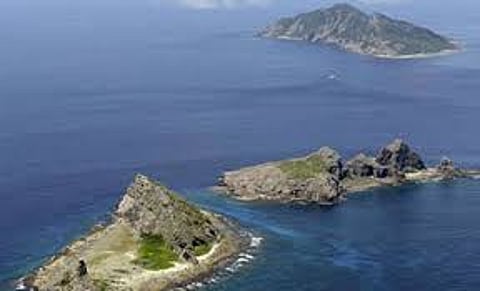

COLOMBO: Dr.Satoru Nagao, Lecturer in Security Studies at the Law Faculty of Gakushuin University in Japan, advices Sri Lanka to cultivate good relations with India and India-friendly countries like Japan, to counterbalance its relations with China which could cause tension in the South Asian region.
Delivering a lecture on the impact of China’s rise on Japan, US, India and Sri Lanka at the Institute of National Security Studies here on Wednesday, Dr.Nagao said: “ As Sri Lanka is increasingly accepting Chinese support, it should also increasingly emphasize cooperation with India. Sri Lanka should also enhance cooperation with other countries that are friendly to India like Japan.”
“Japan has a strong will to support India’s rise” and at the same time, “Japan has been a stable supporter of Sri Lanka for years,” he said.
He went on to suggest that Japan, India and Sri Lanka would be ideal partners to counterbalance China’s aggressive strategic moves in the region disguised as economic development cooperation.
“If Japan and India collaborate to establish a maritime communication network system in Sri Lanka that would serve the entire Indian Ocean, it would be easy for the three countries to be aware of what occurs in the Indian Ocean. These collaborative projects are preferable to accepting China’s support, which would create strategic difficulties. Under Japan-Sri Lanka-India cooperation, a win-win situation can be created.” Dr.Nagao said.
India’s Responsibility
The Japanese scholar said that with the US presence in the Indian Ocean declining and China’s power rising, Japan and India will have to shoulder the responsibility of seeing that there is no undue power imbalance or aggressive action by China to dominate the sea lanes violating the rules, as it does in South China Sea.
“India will the most influential sea power to fill the power vacuum in the Indian Ocean region in the near future,” Dr.Nagao told the Sri Lankan audience.
India’s sea borders are larger that its land borders (7517 kms and 6100 kms respectively) he pointed out. India is acquiring 100 more warships in the next decade to have a fleet of 200 ships. It already has 55,000 naval personnel. The navy’s share of the Indian Defense Budget had gone up from 12.7% in 1990 to 15.8% in 2015. The Cholas of the 12 th.Century had shown that India could be a sea power in South and South East Asia, the Japanese scholar pointed out.
Unlike China, India will be a responsible naval power, Dr.Nagao contended. While India accepted the UN Arbitrator’s award on the India-Bangladesh Sea Boundary dispute in 2014, China rejected a ruling of the Permanent Court of Arbitration in 2016, he pointed out.
“As a result, is seems that Japan and the United States would wish India to exhibit a more positive role in the Indian Ocean. India’ rise helps lower the heavy burden on Japan and the US in the Indian Ocean and helps them concentrate naval and air military resources towards areas around Japan and the South China Sea,” Dr.Nagao said.
In a friendly warning to Sri Lanka, which might be believing that Chinese development activity in the island is innocent and benign with no security implications for it, the Japanese scholar said that China has always used development assistance as a point of entry and then used the influence gained to push its geo-political strategic-political agenda.
China’s Aggressive Instinct
Historically, China has quickly moved to fill a political-strategic vacuum in an area of its interest, Dr.Nagao said.
“When France withdrew from Vietnam in the 1950s, China occupied half of the Paracel Islands. China occupied the other half of the Paracel Islands in 1974 immediately after the Vietnam War ended and the US withdrew from the region. After the Soviet Union withdrew from Vietnam, China attacked the Spratly Islands controlled by Vietnam in1988. Along similar lines, after the US withdrew from the Philippines, China occupied Mischief Reef, which both the Philippines and Vietnam claimed,” he said.
Japan An Economic Alternative
Asked if India and Japan can fill the huge financial gap which will arise in Sri Lanka if China is curbed, Dr.Nagao said Japan can fill the gap and the Japanese executed projects will be of better quality too.
Asked if Japan could supply weapons like submarines to match the Chinese, Dr.Nagao said that Japan has a policy of not selling sub-standard products to any country and said that the eight submarines sold to Pakistan and the two to be sold to Bangladesh are of poor quality.